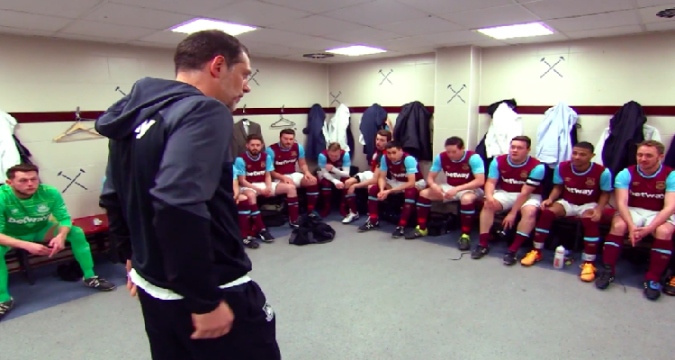
In the world of football, where victories are celebrated and defeats scrutinized, the role of the team coach is pivotal. A coach is more than a figure on the sidelines—they are the strategist, motivator, and decision-maker who lays the foundation for a team’s success. Every decision a coach makes, from player selection to game-day tactics, directly influences the team’s performance and cohesion. This article delves into the multifaceted responsibilities of a football team coach and highlights the key decisions they must navigate to lead their team to glory.
1. Building the Team: Recruitment and Selection
One of the coach’s most critical roles is assembling the right team. This begins with recruitment, where a coach identifies players who fit the team’s strategy, culture, and goals. A coach must balance star players with role players who complement the squad.
Once the roster is set, selection decisions for each game become paramount. Coaches evaluate players’ fitness, form, and attitude to decide who makes the starting lineup and who remains on the bench. Striking this balance requires not just technical knowledge but also emotional intelligence, as players often have strong reactions to being included or excluded.
2. Developing a Tactical Identity
Every successful football team operates within a well-defined tactical framework, and it’s the coach’s responsibility to establish this identity. Whether the team adopts an aggressive, attack-oriented style or a more defensive, counter-attacking approach depends on the coach’s philosophy and the players’ strengths.
Key tactical decisions include:
- Formation choices (e.g., 4-4-2, 3-5-2, or 4-3-3)
- Assigning player roles (e.g., target man striker, playmaker, or box-to-box midfielder)
- Strategies for set pieces like corners and free kicks
Coaches must also adapt their tactics based on the opponent, weather conditions, or game situations. The ability to read a game and make real-time adjustments often separates good coaches from great ones.
3. Training and Development
Beyond match days, much of a coach’s work happens on the training ground. Here, coaches focus on:
- Skill enhancement: Improving individual players’ technical abilities, such as passing accuracy, ball control, and shooting.
- Physical fitness: Ensuring players are in peak condition to withstand the rigors of a match.
- Team chemistry: Creating drills and exercises that build understanding and trust between teammates.
Player development is also a key responsibility. Coaches identify areas where players can improve and provide tailored feedback and support. A great coach not only improves the team but also helps individual players reach their potential.
4. Motivation and Leadership
A coach is also a leader and motivator. They must inspire players to give their best effort, even in challenging circumstances. Motivational speeches before a big match, words of encouragement during training, and a firm but supportive approach to discipline all play a role.
Leadership extends beyond motivation. Coaches need to manage egos and personalities, especially in teams with star players. Fostering a sense of unity and shared purpose is essential for team success. When a team believes in its coach and their vision, it can overcome obstacles and achieve greatness.
5. Decision-Making During Matches
Match days test a coach’s ability to think on their feet. Coaches must decide:
- Substitutions: Bringing on the right player at the right time can turn the tide of a game.
- Tactical adjustments: Shifting formations or strategies mid-match to counteract the opponent’s strengths.
- Handling pressure: Remaining calm under pressure to convey confidence to the team.
These split-second decisions often determine the outcome of tightly contested matches. Coaches must balance logic and intuition to make the right call.
6. Handling Setbacks and Challenges
In football, setbacks are inevitable. A string of losses, injuries to key players, or off-field controversies can derail a team’s progress. How a coach handles these challenges often defines their tenure. Great coaches remain resilient, finding ways to regroup and refocus their teams.
Effective communication during tough times is crucial. Coaches must address issues openly with players while maintaining a positive outlook. Their ability to turn adversity into an opportunity for growth is what keeps teams motivated and united.
7. Long-Term Vision and Legacy
A coach’s impact isn’t limited to a single season. The best coaches leave a lasting legacy by establishing a winning culture, developing young talent, and building a strong club identity. They plan for the future, ensuring that the team continues to thrive even after their departure.
Long-term success requires balancing short-term goals with strategic investments in player development, scouting networks, and team infrastructure. A coach who prioritizes sustainable growth sets their team up for years of success.
Conclusion
The role of a football team coach is a blend of art and science. From tactical planning and player development to motivation and decision-making, a coach’s influence extends to every facet of a team’s operation. While the players execute on the field, the coach orchestrates from behind the scenes, making decisions that shape the team’s identity and success.
Ultimately, a great coach not only wins matches but also fosters a culture of excellence, resilience, and unity. Their ability to navigate the complexities of the game, adapt to challenges, and inspire their team is what makes them the cornerstone of any successful football team.